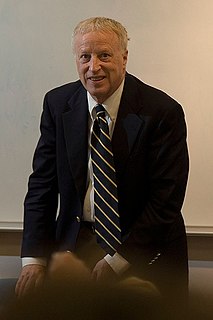A Quote by Murray Rothbard
Modern economics is a set of formal models and equations purporting to fully determine human behaviour, at least in the economic realm. And there is no way that uncertainty can be compressed into determinate mathematical models.
Related Quotes
It is clear that the building of models is not a purely mechanical process but requires skill of a high order - not merely mathematical skill but a sensitivity to the relative importance of different factors and a critical, almost an artistic, faculty in the selection of behaviour equations which are reasonable, tentative hypotheses in explaining the behaviour of actual economies.
Unless the fundamental categories of economics such as 'property' were to be redefined in a radically personal way the liberal rationalist curse which had established economics as a scientific discipline cut off from human interests would proliferate. Economic models ... have failed to incorporate any meaningful index of individual benefit other than the original utilitarian one, ... the index of increasing income or an increasing flow of commodities.
Economic theorists, like French chefs in regard to food, have developed stylized models whose ingredients are limited by some unwritten rules. Just as traditional French cooking does not use seaweed or raw fish, so neoclassical models do not make assumptions derived from psychology, anthropology, or sociology. I disagree with any rules that limit the nature of the ingredients in economic models.
If the system exhibits a structure which can be represented by a mathematical equivalent, called a mathematical model, and if the objective can be also so quantified, then some computational method may be evolved for choosing the best schedule of actions among alternatives. Such use of mathematical models is termed mathematical programming.
The economics of the space industry are changing. Within so called 'NewSpace,' not only are new entrants being created almost daily, the business models and capital sources have proven to be dramatically different from traditional models built upon large government contracts and defence-related spending.
One might think this means that imaginary numbers are just a mathematical game having nothing to do with the real world. From the viewpoint of positivist philosophy, however, one cannot determine what is real. All one can do is find which mathematical models describe the universe we live in. It turns out that a mathematical model involving imaginary time predicts not only effects we have already observed but also effects we have not been able to measure yet nevertheless believe in for other reasons. So what is real and what is imaginary? Is the distinction just in our minds?

































